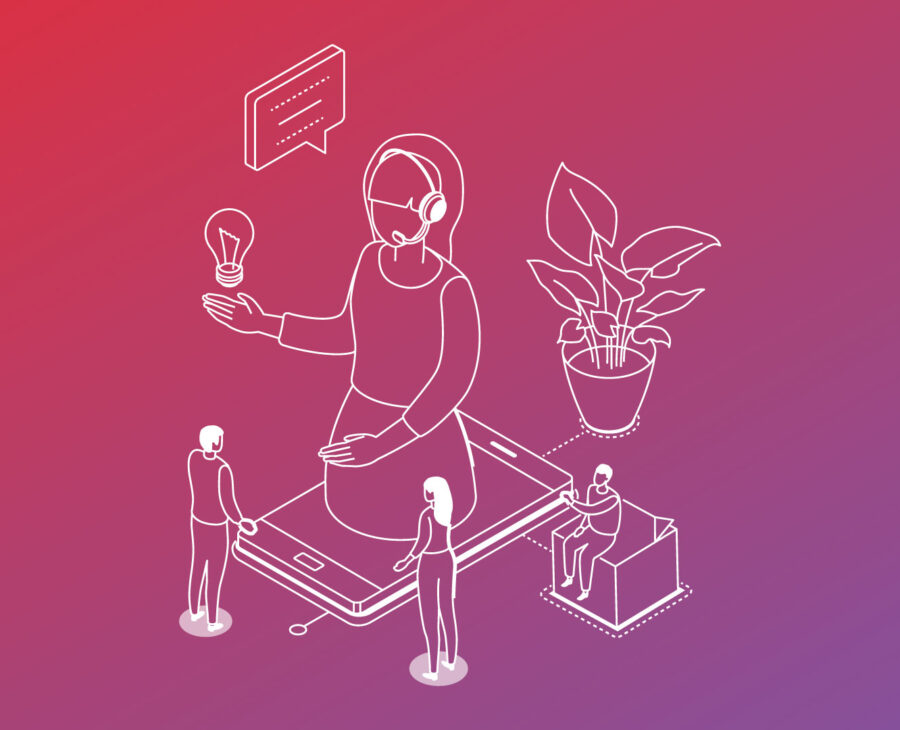As we stand at the crossroads of innovation and progress, it becomes increasingly apparent that the interplay between education, a skilled workforce, and diversity will shape the success of businesses in the future. On 16 January, at the digitalswitzerland Village during the World Economic Forum in Davos, we brought together experts from education, business, and politics to explore practical strategies and innovative approaches to unlock the full-potential of our population and to close the tech talent gap in Switzerland.
Breaking Barriers
Close the talent gap: Women in Tech as the best bet to tackle our skills-shortage.
Breaking Barriers is not just a catchphrase; it’s a call to action in the fast-evolving landscape of technology. As we navigate the challenges of the rising skills-shortage in Switzerland’s tech landscape and at the same time only about 1/5 of the tech workforce are women, it becomes clear that we need to act. In a first-of its kind workshop with all the participants, we collaborated with Dr. Ines Hartmann and Nicole Niedermann from the Competence Centre of Diversity & Inclusion at University of St. Gallen as well as Anna Mattsson, President of Advance and Partner at McKinsey & Company to find out how to bridge the female tech talent gap.
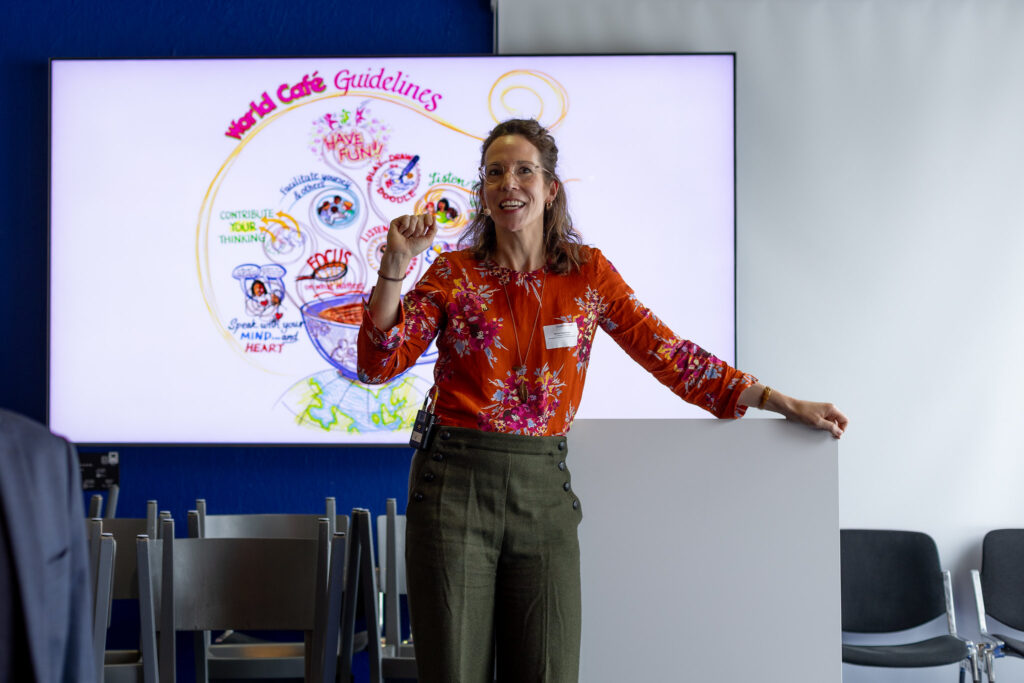
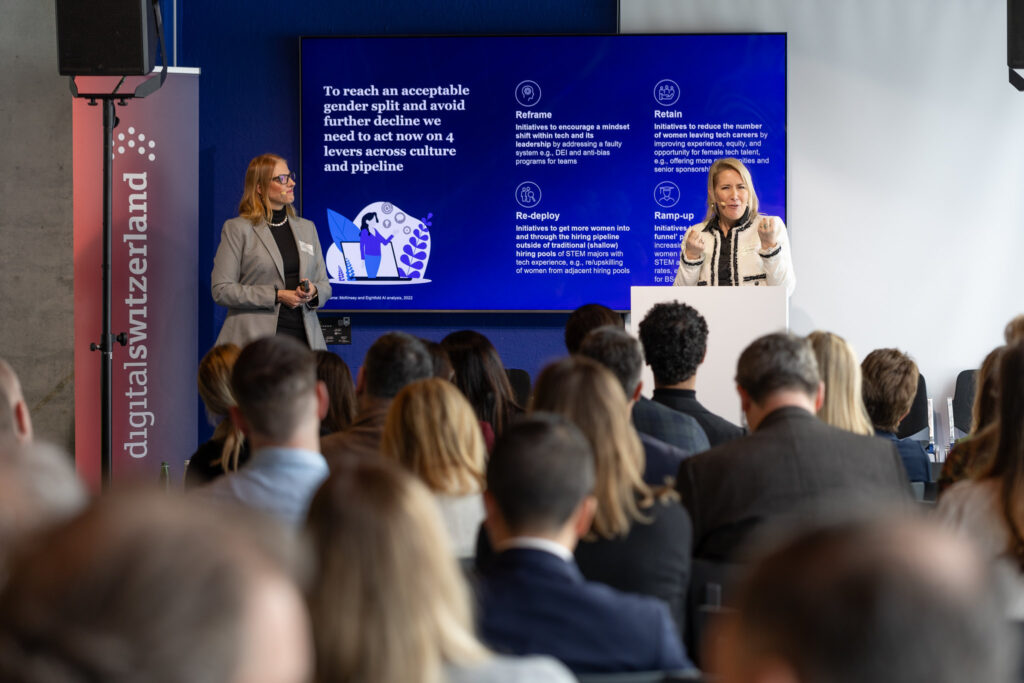
Some key measures that were highlighted include:
- Reframe with initiatives to encourage a mindset shift
- Retain with initiatives to reduce the number of women leaving tech careers
- Re-deploy with initiatives to get more women into and through the hiring process
- Ramp-up with initiatives to boost the pipeline
Shaping Learning
Delve into the future of learning and find out more about the transformative impact of digital innovation in education.
Moving on from more women in tech, we looked at how technology plays an important role in shaping the way we learn and how it opens up new opportunities, for example with a more personalised learning experience for all. In an insightful impulse speech, Jean-Marc Tassetto, strategic advisor EMEA at Go1 and co-founder of coorpacademy, highlighted the importance of creating learning experiences with the end-user in mind. These learning experiences are not optional, by 2027, nearly 100 million jobs may emerge which are more adapted to the division of labour between humans, machines and algorithms.
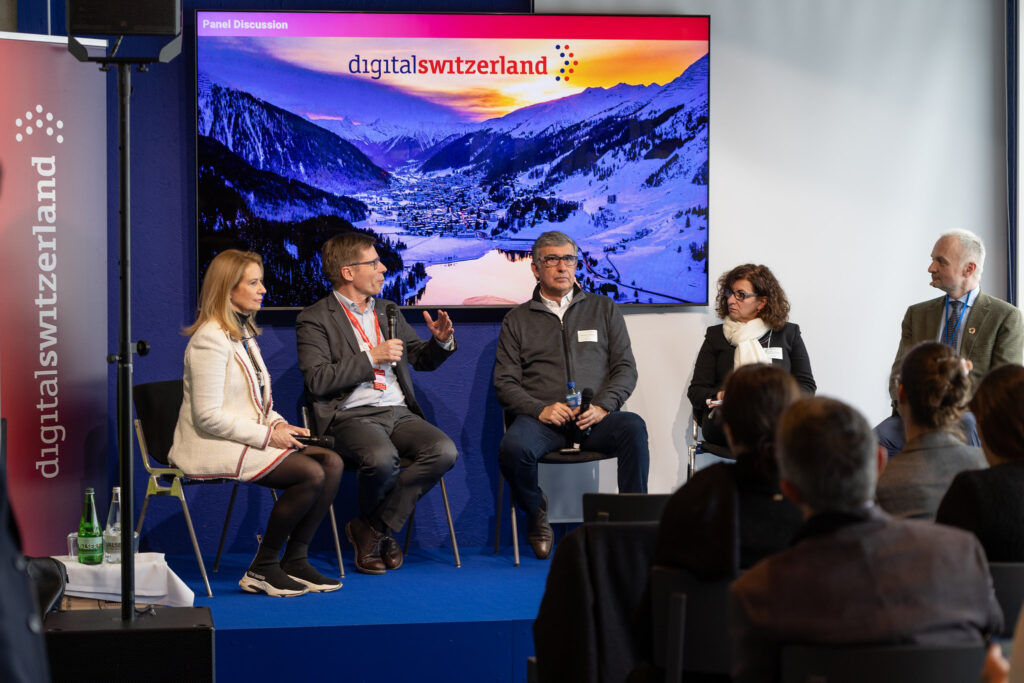
In an exciting panel discussion, moderated by Prof. Dr. Misiek Piskorski (Dean IMD Asia and Oceania), and with our experts Anat Bar-Gera (Tech investor and board member), Prof. Dr. Joël Mesot (President ETH Zurich), Dr. Luciana Vaccaro (President swissuniversities and rector HES-SO) and Jean-Marc Tassetto, it has become clear that we face an upskilling emergency with new and softer skills becoming the imperative. Universities and companies alike play a crucial role in enabling people to stay up-to-date with state-of-art, personalised learning experiences leveraging the power of technology and at the same time include the skills that are learned best through personal interaction such as collaboration, initiative, empathy, and more.
Re-Thinking Work
Explore the power of human/tech collaborations with corporate foresight and a human centric approach.
Making sure people are appropriately skilled is paramount to prepare for the future of work. In the era of digital transformation, the nature of work is undergoing unprecedented changes. In an insightful impulse speech, Martin Wezowski, Chief Futurist at SAP, highlighted the case for learning how to “surf” and following one’s personal vision, as we need to with the flow and many jobs that will exist in 2030 have not been invented yet.
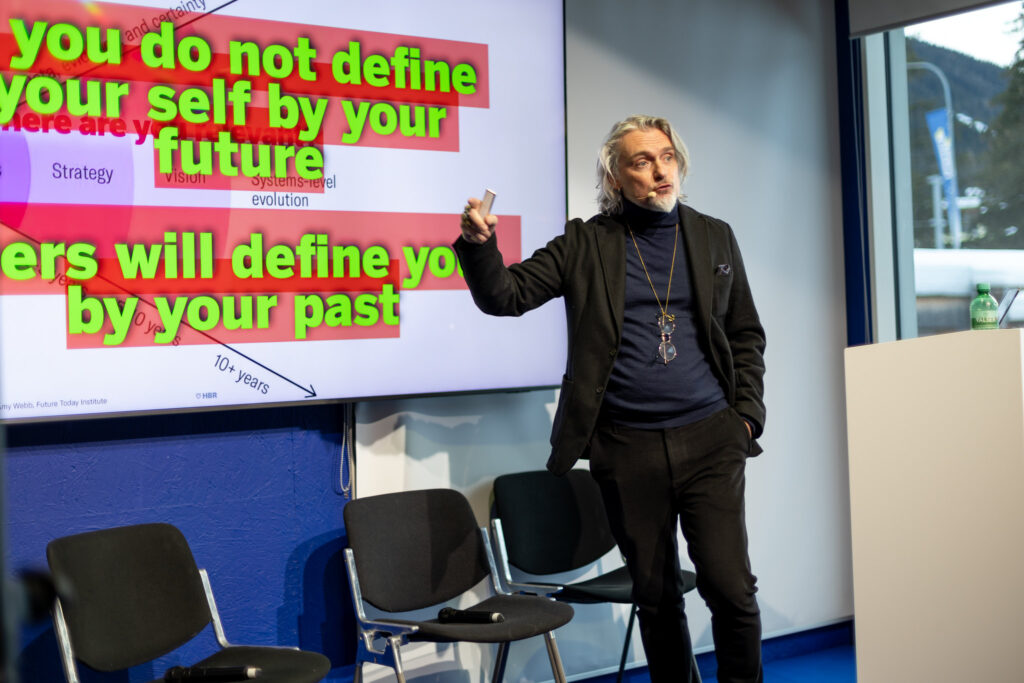
Following the impulse speech, we took a deep-dive in the discussion with our fantastic guests, Jolanda Grob (Chief People Officer, Zurich), Catrin Hinkel (CEO, Microsoft Switzerland), Prof. Dr. Martin Vetterli (President, EPFL), Martin Wezowski and our moderator Prof. Dr. Misiek Piskorski (Dean, IMD Asia and Oceania). It became paramount to prioritise people and lifelong- / or continuous learning as 50% of the employees will need reskilling in the next years. Looking at innovation through creativity, it becomes clear that it happens more and more through human/technological collaboration.
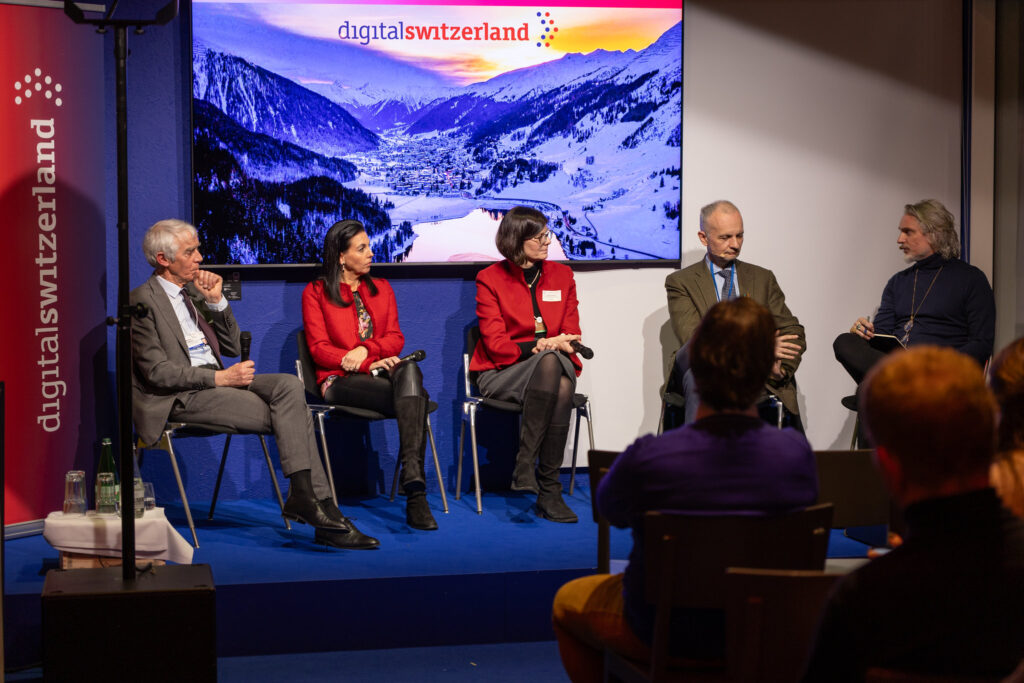
Inspired to know more and be part of the journey towards mitigating the skills-shortage in tech and ensuring Switzerland is on the right path when it comes to education, skilled workforce and diversity? Let us know your thoughts and find out more about our work here.





